"nothing is meaningless"
Poet Hiwot Adilow on how Ethiopia's 1974 Revolution shaped her family's migration, her writing as resistance, and creating amid capitalism's constraints.
Freedom Ways is an interview and essay series exploring the intersection of artistry and liberation, illuminating how art serves as both personal transformation and collective resistance. Our inaugural Freedom Ways interview features Hiwot Adilow, a talented poet and teaching artist. Enjoy!
If you know or are someone who would like to be considered for our Freedom Ways series, send us an email by replying to this newsletter.
What is a moment from your personal or family history that has informed the way you think about liberation?
The 1974 Revolution in Ethiopia—and the following Red Terror—shape much of my thinking in general because it was, I think, the catalyst to my family’s migration and the reason I am, as Safia Elhillo writes, “someone’s daughter but i am american born it shows in my short memory my ahistoric glamour my clumsy tongue…”
This is not to say there haven’t been events after those in 1974 that motivated people to leave and become part of diaspora, that caused Ethiopian-born people to become refugees; it is just that in my own family, my father was part of the generation threatened and punished by the Derg. He told me a story about how he used to write letters critiquing the Derg government and would sign them with the name “Hiwot.” Life. I wrote a poem including this anecdote and performed it on Final Stage at Brave New Voices in 2012. The fact that his act of writing was one thing that got him imprisoned and later led him to flee Ethiopia, migrate to Kenya, face rejection for asylum in Germany, and finally relocate to the U.S…is amazing to me. All because he picked up a pen. I often wondered who I would be if my parents didn’t leave Ethiopia. Or if my father’s asylum in Germany had been accepted.
Why do you write? Why have you chosen to work with language?
I write because I’m trying to work things out in my head, make sense of the world, my experiences. Sometimes I write to calm myself, to get a feeling out and be free of it. It wasn’t until going to my first poetry slam that I realized I could share my writing. I had been keeping diaries from the ages of 7 or 8 and my father said, “Great. When you die they’ll make a movie of your life.” And that shook me. Put pressure on my inner world. But also made me begin to think that my writing wasn’t aimless, I just hadn’t discovered what my particular aim was. I hadn’t considered the writing I did in my journals as anything but private. I didn’t think people of my age or background could be authors. Then, I went to my first poetry slam in 2010. I experienced slam poetry and spoken word for the first time outside of cartoonish tropes. It ignited in me a desire to continue the writing I had always been doing while also inspiring new directions for that writing.
I’m drawn to writing because it is intuitive and allows me to express myself more immediately than other art forms.
I think of writing as another instrument. I didn’t have the patience or stick-to-it-ness to learn the flute or cello when I was younger, but I already knew how to write. So I’ve committed myself to studying the manipulation of language like a musician would study the composition of notes, scales, and chords. I have my voice, my singing voice, and use that as a tool in my poetry as well. But I’m drawn to writing because it is intuitive and allows me to express myself more immediately than other art forms.
Which texts/writers/works of art ground you as a writer working during various collective crises?
Works I am currently reading include Kaveh Akbar’s novel MARTYR! and Simone White’s Dear Angel of Death. I am also tapping into The Artist’s Way by Julia Cameron.
I return to essays in Audre Lorde’s Sister Outsider: “Uses of the Erotic” and “The Transformation of Silence into Language and Action.” I am slowly delving into
’s Feelin: Creative Practice, Pleasure, and Black Feminist Thought. My partner is guiding me through Afro-pessimism and I think learning more about that will help ground and incite me in these times. On top of my TBR list is Selamawit D. Terrefe’s dissertation.I think artists who are tapped into the needs of the people are also working to help give us stamina and incite a sort of creativity that propels people toward whatever action they can contribute to the larger resistance.
What do you believe is the role of creativity in collective resistance?
Toni Cade Bambara said the role of the artist is to “make revolution irresistible.” I think artists who are tapped into the needs of the people are also working to help give us stamina and incite a sort of creativity that propels people toward whatever action they can contribute to the larger resistance.
What/how do you resist in the literary world?
I’m not sure how involved I am in “The Literary World.” I submit my poems on Submittable, and I have aspirations of writing fiction and submitting essays to journals, but I’ve never been to AWP or published by a large or well-paying press. Part of my resistance (and I am very hesitant to call it that) is being selective about what I participate in and contribute to. I think when I first began my life as a poet, as a teen, I didn’t have much discernment. Or, I had the discernment of a 15 year old. Now, more than 15 years later, and with the intention of writing for the rest of my life, I am not swayed by what formulaic paths toward “success” are dished out. Because of the details of my life, I am finding I have to approach writing in a way that is more gentle and conducive to being a mother, working full-time, and having whatever limitations I have due to my health and priorities. I suppose my resistance is in not being too allured by what may seem like quick ways to “Success.”
The manufactured anxieties of scarcity take time from me by distracting me from the presence needed to be a fully creative person.
How do the pressures created by capitalism impact your experience as a writer?
The aspect of my writing life most hindered by capitalism is the luxury of using my time as I’d like. Capitalism causes the theft of time: time to think, time to play, time to live. Time with my family is stolen from me when my partner has to clock in, when I have to go to work. Moments we could be spending together, with our child, are taken from us because of schedules we must adhere to in order to get paychecks to barely afford the food we eat, which we rush to make because we’re tired or obligated to go somewhere, like back to work in a few hours. I have to offer my time in order to be paid, in order to afford more time, which there is never enough of. I spend hours I’d rather use for my art and with my family or by myself worrying about my job and its duties. And worrying is a symptom of capitalism that wastes time as well. The manufactured anxieties of scarcity take time from me by distracting me from the presence needed to be a fully creative person.
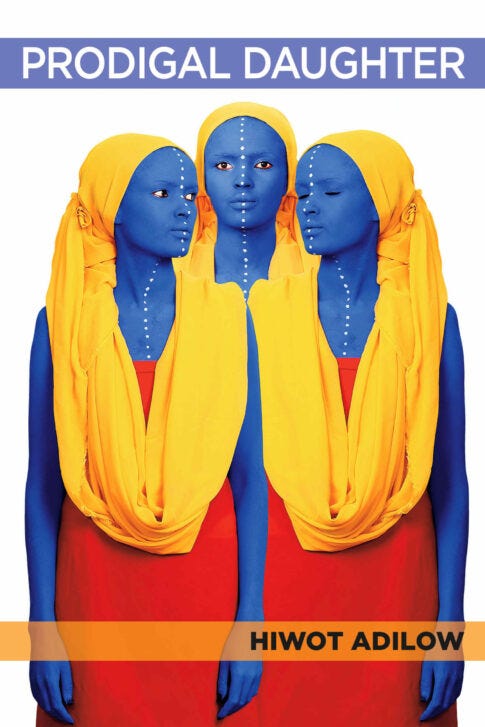
What does the practice of writing teach you about living?
Writing teaches me that living is a learning process. Each experience and decision is part of a larger project, which means that nothing is meaningless. Even the most mundane or minute details add up and have a role in my life. Meaning may not be apparent at first, but turning back, reflecting, and rereading notes I’ve left for myself make it possible to learn something from what I’ve been through.
If money were not a factor, what would you make or do for your community? Tell us your dreamiest vision.
I have an idea for a novel about the process of making a documentary focused on a missing singer and the members of her once-flourishing blues band. It stems from a short story I wrote in a workshop with Danielle Evans when I was in undergrad. If money were not a factor, first I’d make the music that the band in the story made. I’d record it. I’ve written some of it already. I’d get my own band together and perform it when I have readings of this novel that is still in progress, still in the dreamscape with a few hundred words toward it. Offering that music to my community would be the only way I’d ever want to put music into the world. Living vicariously through my main character, haha.
Hiwot Adilow is an Ethiopian American poet from Southwest Philadelphia. She is co-winner of the 2018 Brunel International African Poetry Prize and author of the chapbooks In the House of My Father (Two Sylvias Press, 2018) and Prodigal Daughter (Akashic Books, 2019). Hiwot is a fellow of The Watering Hole, Callaloo Creative Writing Workshop, The Pink Door Writing Retreat, Anaphora Writing Residency, and VONA. Her work appears in Vinyl, Callaloo, The Offing, and Reconstructed Magazine, and has been anthologized in The BreakBeats Poets Vol 2.0: Black Girl Magic (Haymarket Books, 2018). Visit her at her humble website, www.hiwotadilow.com and see what she’s up to on Instagram @hiwotadilow.
Thank you for reading this edition of Freedom Ways. Become a paid subscriber, share us on social media (if you please) or Substack notes!

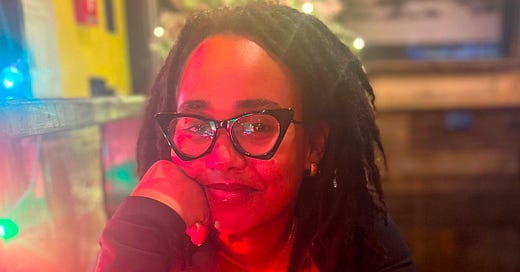




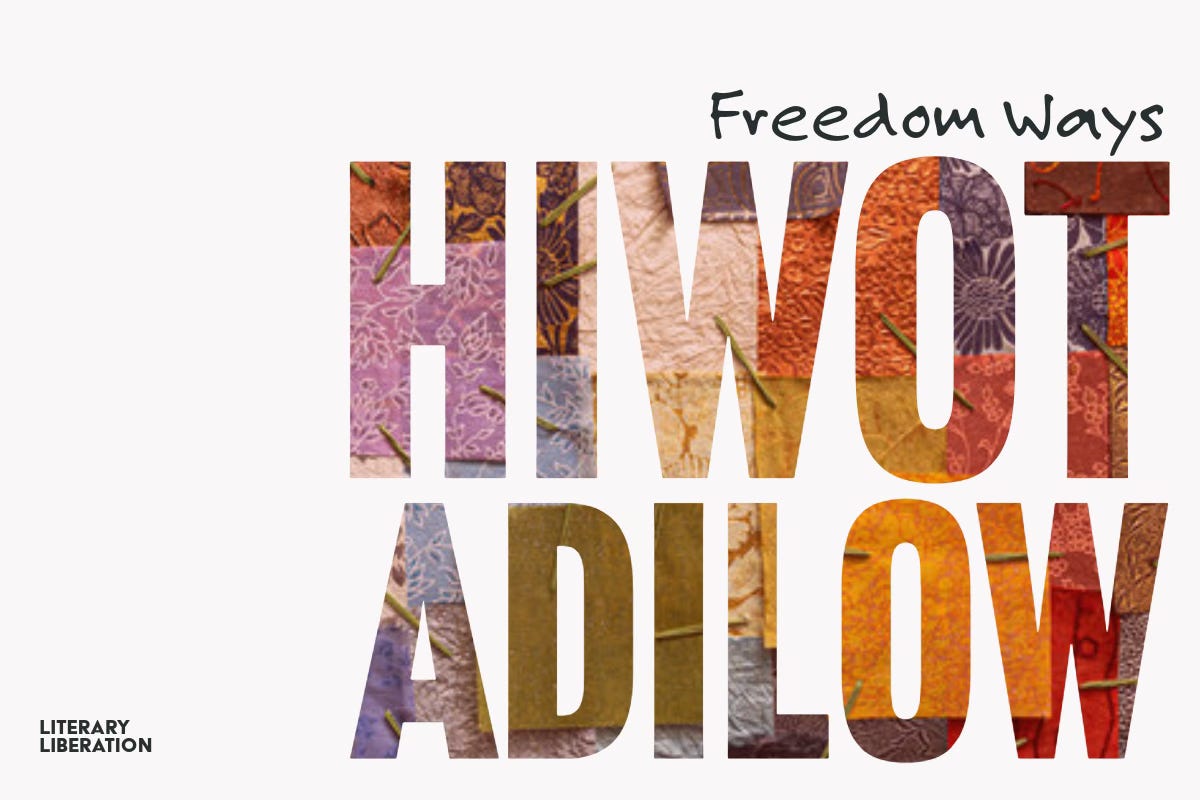

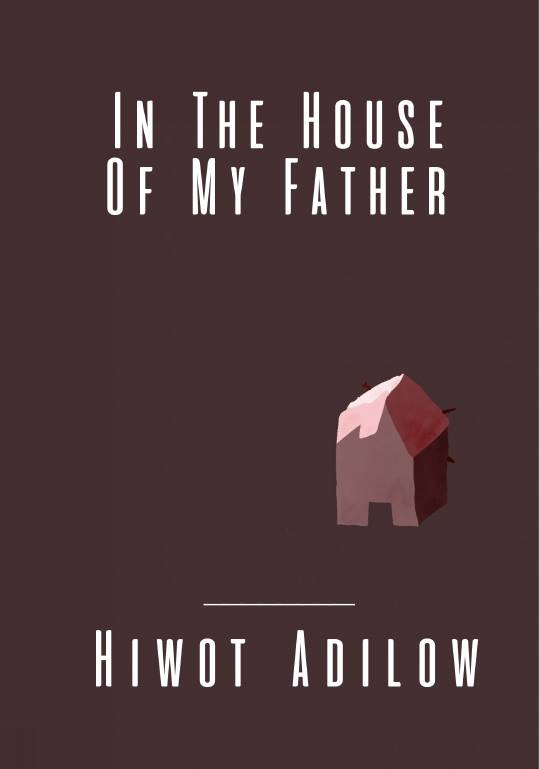
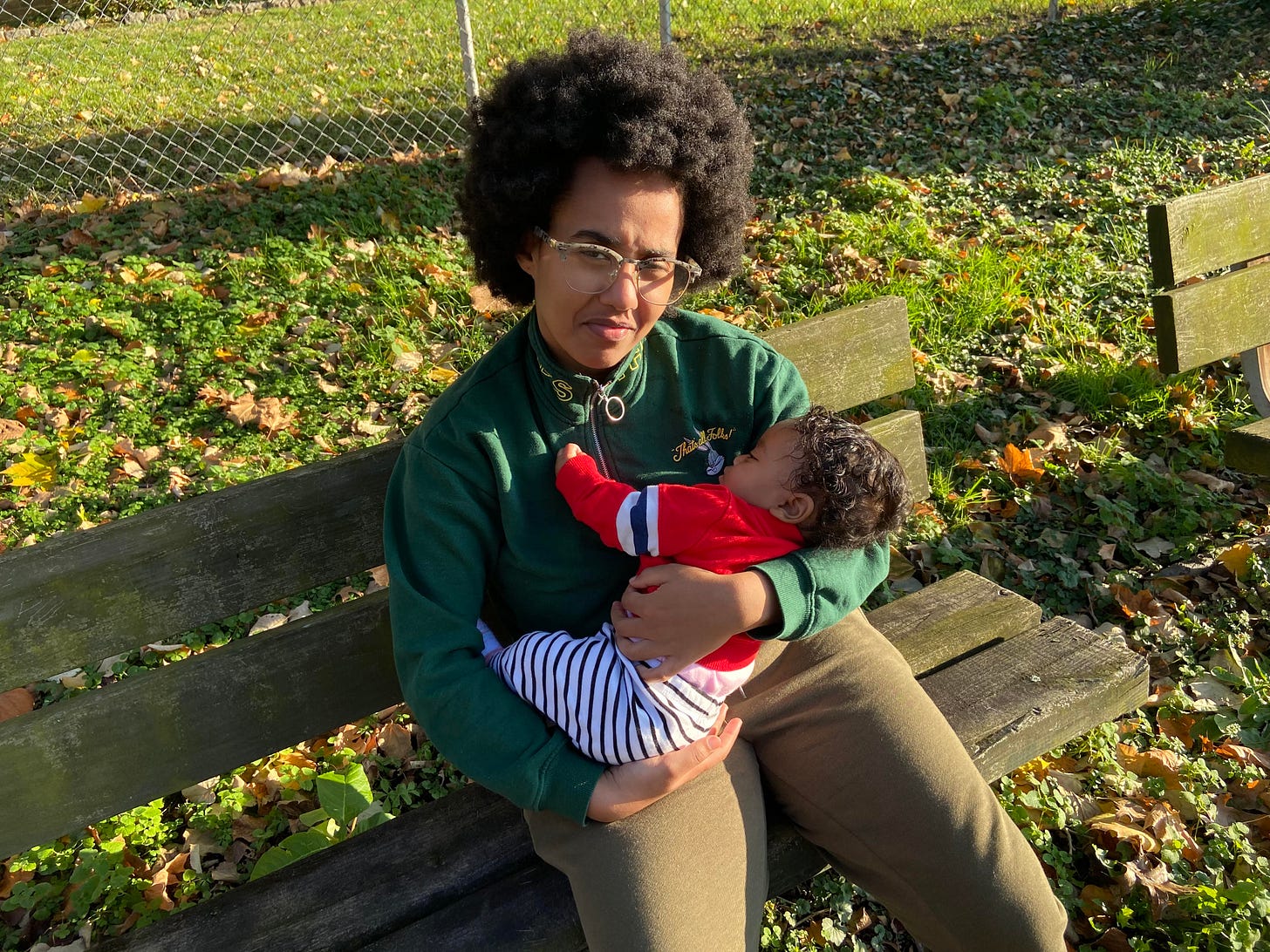
Hiwot! So nice to see you here, we met in the Anophora Residency last year!